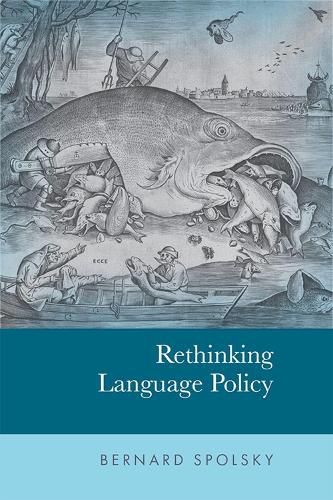Readings Newsletter
Become a Readings Member to make your shopping experience even easier.
Sign in or sign up for free!
You’re not far away from qualifying for FREE standard shipping within Australia
You’ve qualified for FREE standard shipping within Australia
The cart is loading…






Drawing on four decades of research, Bernard Spolsky presents an updated theory of language policy that starts with the individual speaker instead of the nation. In this book, he surveys the language practices, beliefs, and planning efforts of individuals, families, public and private institutions, local and national activists, advocates and managers, and nations. He examines the diversity of linguistic repertoires and the multiplicity of forces, linguistic and non-linguistic, which account for language shift and maintenance. By starting with the individual speaker and moving through the various levels and domains, Spolsky shows the many different policies with which a national government must compete and illustrates why national policy is so difficult. A definitive guide to the field, this is essential reading for policy makers, stakeholders, researchers, and students of language policy.
$9.00 standard shipping within Australia
FREE standard shipping within Australia for orders over $100.00
Express & International shipping calculated at checkout
Drawing on four decades of research, Bernard Spolsky presents an updated theory of language policy that starts with the individual speaker instead of the nation. In this book, he surveys the language practices, beliefs, and planning efforts of individuals, families, public and private institutions, local and national activists, advocates and managers, and nations. He examines the diversity of linguistic repertoires and the multiplicity of forces, linguistic and non-linguistic, which account for language shift and maintenance. By starting with the individual speaker and moving through the various levels and domains, Spolsky shows the many different policies with which a national government must compete and illustrates why national policy is so difficult. A definitive guide to the field, this is essential reading for policy makers, stakeholders, researchers, and students of language policy.